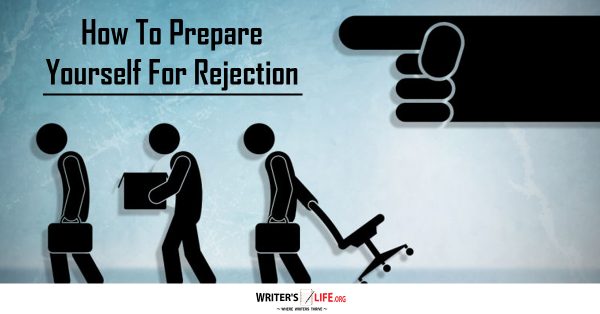- How To Tackle Jealousy In Creative Writing
- Common Submission Mistakes
- How To Stop Your Blog Becoming Boring
- The One Thing Every Successful Writer Has In Common
- How To Make Yourself Aware Of Publishing Scams
- Why Almost ALL Writers Make These Grammar Mistakes At Some Point
- 5 Tips For Authors On How To Deal With Rejection
- Top Mistakes to Avoid When Writing a Novel
- How to Avoid Common New Writer Mistakes
- 10 Mistakes New Fiction Writers Make
How To Learn From Rejection

Rejection is something that all writers go through. It’s almost a rite of passage! Rejection can be terrible, and there is no doubt that being rejected, particularly if it happens over and over again can feel somewhat disheartening (to put it mildly).
However, trying to review rejection in a different light is the only way to get over it. If we skulk into a corner and lick our wounds, or dramatically delete all our writing files and decide never to write again, we are hardly doing ourselves any favours. Instead, it is essential to look at rejection as an important lesson, to learn from everyone, and figure out what we can do better next time.
So what are the lessons that we should try to learn from rejection?
Luck is part of it, but not all of it!
We’ve all got to accept that getting a 'yes' from a publisher or agent has a little bit to do with luck. You might just happen to have written the right story at the right time, have caught the editor who reads your book in a positive mood, or just have something about your writing that appeals to their personal tastes. Try as we might it is challenging to predict how our writing will be received and it might be that had we sent it in on a different day the outcome may not have been the same. However, there is no point concentrating on the things we can’t control! So instead of feeling depressed about the ‘bad luck’, you are having, focus on the things you can do to improve and change.
Your writing needs more work
For many authors, the simple fact is that their writing is not yet good enough. While this may seem disheartening if you have poured your heart and soul into your manuscript, it doesn’t mean that your writing won’t be good enough in the future. Rejection is simply telling the author their book might need more work. If you are the kind of author who is willing to accept that and keep working at it, there is every chance that the next time you try, you might get the ‘yes’ you were hoping for.
Your pitch needs more work
Have you followed the submission guidelines exactly? Have you put all the effort you could muster into making your pitch as slick and exciting as possible? Have you tried to find other ways to boost your writing experience, get published in smaller publications, win writing competitions, gain a good following on social media? All these things count and can help make an editor or agent sit up and take notice of you. So make sure you have done everything you can to make your pitch stand out before you send it off.
You are pitching to the wrong people
If you are just blindly sending your manuscript to every publishing house and agent, you can think of you will undoubtedly receive many rejections because your book is of no interest to them. Not doing your research is just lazy and a waste of your and their time. Do yourself a favour and take the time to find the exact people who are likely to enjoy your book, and only send it to them.
You need to look at other options
It may be that you’d be better off trying to get your manuscript published via an alternative route. Perhaps you could look into self-publishing? Perhaps you could break it down into a series of blogs and release it yourself? Perhaps you could see if a magazine would publish it chapter by chapter. Remember traditional publishing is not the be all and end all and sometimes you have to get creative and think outside the box.
Remember, we can say it time and time again, but the truth is that when it comes to writing, perseverance is vital. Rejection isn’t pleasant for any writer, but by learning and improving each time, you will be one step closer to achieving your writing goal. Remember only one agent or publisher needs to love your work to completely change your life, and then all those other rejections won’t matter anyway!

Bethany Cadman -author of 'Doctor Vanilla's Sunflowers'




























